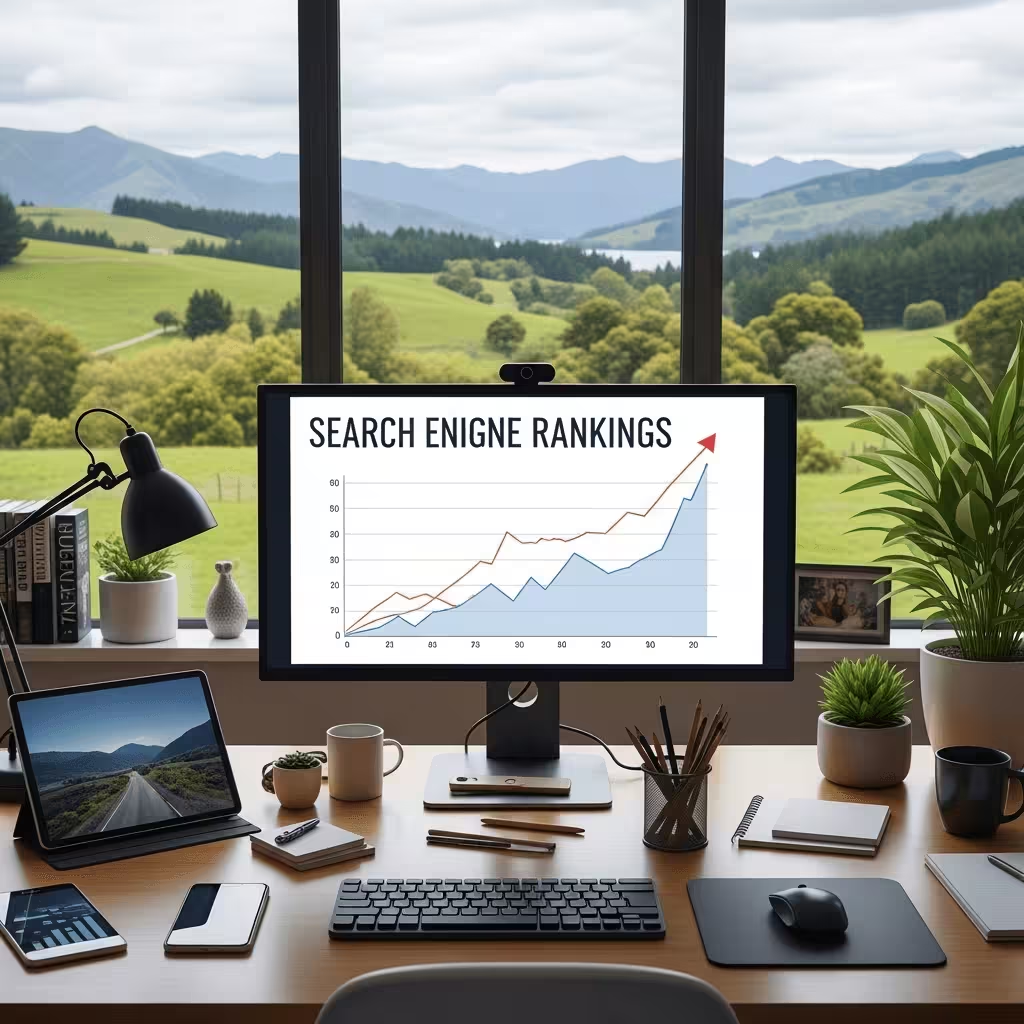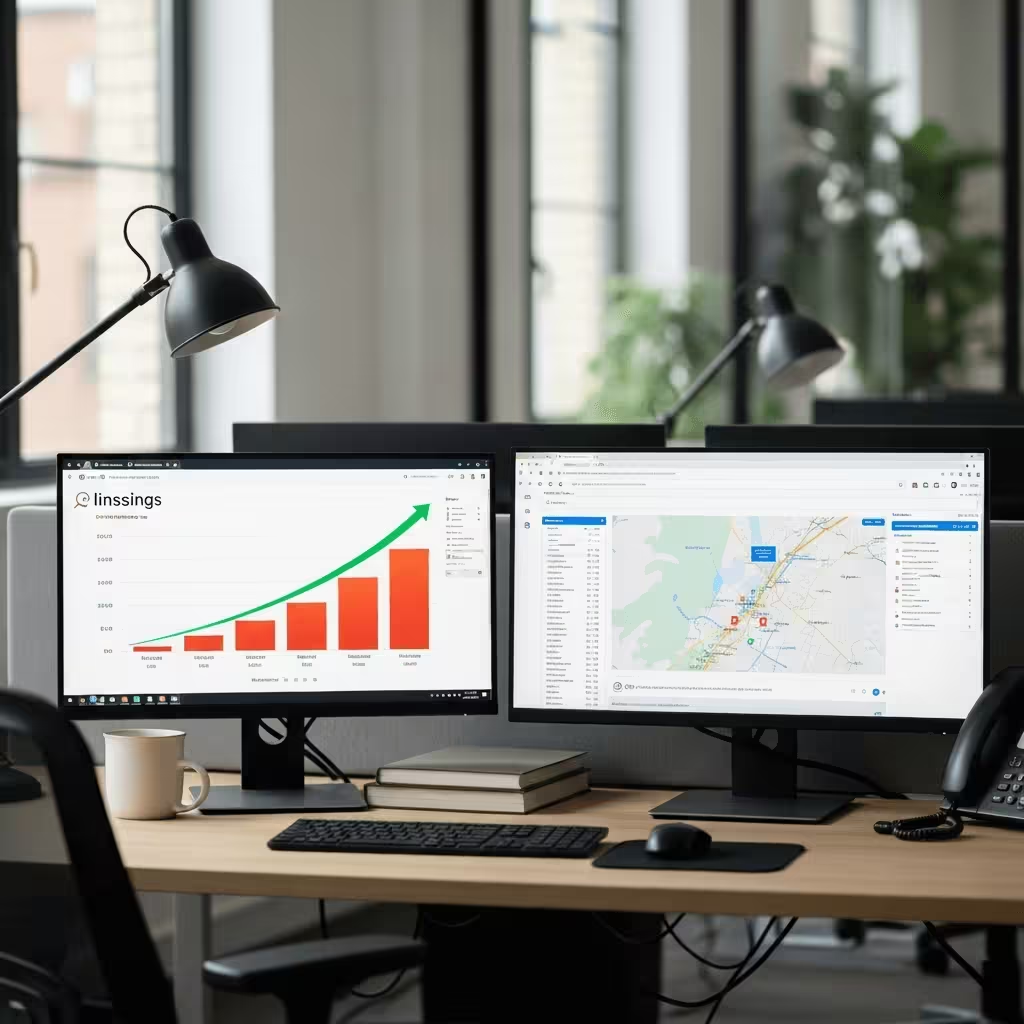Learning how to do SEO yourself can significantly boost your website’s visibility, driving more traffic and increasing potential customer engagement without the need for professional services.
- Introduction
- Understanding the Basics
- Implementing Your SEO Strategy
- Why Choose Jared Lean Digital for Your DIY SEO Efforts
- Frequently Asked Questions
- How can I effectively do SEO myself?
- What are the most important SEO techniques for beginners?
- How long does it take to see results from SEO efforts?
- Can I really do SEO myself without any prior experience?
- What tools do I need to start my own SEO?
- How frequently should I update my SEO strategy?
- Are there any local SEO tips specific to New Zealand?
- Is SEO ever fully “completed”?
In the rapidly evolving digital landscape, mastering the art of SEO is more crucial than ever. For many individuals and small business owners, understanding how to do SEO yourself is a valuable skill that not only cuts costs but also offers greater control over your online presence. This comprehensive guide will walk you through the essential components of SEO, empowering you to take your digital marketing efforts into your own hands.
Understanding the Basics
SEO, or Search Engine Optimisation, is the practice of enhancing your website to achieve higher rankings on search engine results pages (SERPs). By understanding the key principles of SEO, you can improve your website’s visibility, attract more visitors, and potentially increase sales or engagement. In this segment, we’ll explore the core elements of SEO, helping you grasp the fundamentals needed to get started.
Tools and Resources
One of the first steps in learning how to do SEO yourself is to familiarise yourself with the tools and resources that can make your optimisation efforts more efficient. From keyword research tools to analytics platforms, these digital utilities aid you in crafting a strategy tailored to your specific needs and goals. At Jared Lean Digital, based in New Zealand, we recommend a variety of user-friendly tools that cater to both beginners and seasoned marketers alike.
The Importance of On-Page SEO
A critical aspect of SEO is ensuring that each page of your website is optimised to its full potential. On-page SEO involves tweaking elements such as meta tags, headings, and content quality to ensure that your site meets search engine standards. By focusing on on-page factors, you lay a solid foundation for your SEO strategy, making it easier to rank higher for your chosen keywords.
Ongoing SEO Tactics
SEO is not a one-time endeavour but requires constant attention and updates. Monitoring your website’s performance, staying updated with search engine algorithm changes, and continuously refining your strategies are essential to maintaining your site’s visibility. This section will provide insights into developing sustainable SEO practices, ensuring that your optimisation efforts yield long-term results.
Conclusion
By taking the initiative to learn SEO and applying these strategies effectively, you can transform your digital presence and reach your target audience more efficiently. With dedication and the right tools, mastering how to do SEO yourself is within reach, providing a substantial boost to your online engagement and success.

Understanding the Basics
Having introduced the fundamental idea of why doing SEO yourself can benefit individuals and businesses alike, it is pivotal to delve deeper into the core principles that underpin effective search engine optimisation. This section aims to unravel the basic yet crucial aspects, providing you with a roadmap to develop a strong and sustainable SEO strategy. Essential to this journey are two main components: on-page SEO and off-page SEO.
On-page SEO: Important Elements
On-page SEO is the practice of optimising individual web pages to rank higher and earn more relevant traffic in search engines. The process involves multiple factors, such as content quality, keyword optimisation, and the structuring of URLs, that collectively enhance visibility. Content quality remains at the apex, as search engines aim to deliver the most relevant content to their users. To optimise your content, ensure that it includes naturally integrated keyword variations pertinent to the topic, follows a logical structure, and offers valuable insights.
Another vital aspect of on-page SEO is the use of meta tags, including title tags and meta descriptions, which serve as the page’s doorway in search engine results. Additionally, proper URL structure not only assists in improved indexing by search engines but also promotes user-friendly navigation. Implementing these elements broadly will improve both search engine rankings and user experience.
Off-page SEO: Essential Techniques
Unlike on-page SEO, off-page SEO refers to activities conducted away from your website aimed at improving its positioning in search engine results. The most pivotal aspect of off-page SEO is backlink building. Search engines perceive backlinks as votes for a specific page, indicating its credibility and relevance. Thus, acquiring high-quality backlinks from reputable sources can significantly enhance your site’s authority and ranking.
Engaging in social media marketing and influencer collaborations are other effective off-page strategies. Social signals, while not a direct ranking factor, can influence visibility and indirectly enhance SEO outcomes by increasing referral traffic and enriching content visibility through sharing. Participation in relevant forums, communities like Reddit, and Q&A sites such as Quora can further expand reach and establish authority.
Both on-page and off-page SEO are essential to driving organic traffic and achieving a sustainable online presence. As you hone your skills within these areas, the next step is to learn how to implement these strategies effectively. Here, platforms like Jared Lean Digital, based in New Zealand, will serve as excellent resources to aid in navigating this process.

Implementing Your SEO Strategy
Having grasped the basics of SEO, it’s now time to put theory into practice. Implementing an SEO strategy involves an intricate blend of planning, execution, and continuous refinement. This process starts with setting clear objectives that align with your broader business goals and understanding the competitive landscape in your niche.
Setting Clear SEO Objectives
Before embarking on any SEO initiative, it is crucial to set precise, measurable, and achievable objectives. These goals should reflect the results you want to achieve, such as increasing organic traffic, improving search engine rankings, or boosting online visibility in New Zealand. A key approach is to use the SMART criteria—specific, measurable, attainable, relevant, and time-bound. Doing so ensures that your SEO efforts are focused and productive.
For instance, rather than a vague goal of “improving SEO,” consider specifying an objective like “achieving a 25% increase in website traffic over the next six months.” Clear objectives guide strategy development and make it easier to measure success.
Researching Keywords Effectively
Keyword research is a foundational element in SEO strategy implementation. It allows you to pinpoint which search terms people are using and tailor your content to these queries, thereby increasing the likelihood of appearing in relevant search results.
There are several tools available, such as Google Keyword Planner and Moz’s Keyword Explorer, that can help you identify high-value keywords relevant to your business. These tools provide insights into search volume, competition levels, and overall potential for driving traffic to your site. Identifying a mix of short-tail and long-tail keywords ensures that your content caters to various audience segments, boosting both reach and relevance.
On-Page Optimisation Tactics
Once you’ve researched your keywords, the next step is to optimise your website content accordingly. On-page SEO involves strategies such as using these keywords naturally throughout your site, optimising meta tags, and enhancing internal linking structures.
Ensure that each page of your site is targeting a primary keyword and supportive variations, strengthening topical relevance. Additionally, focus on improving user engagement through high-quality content and a seamless user experience, which includes fast page loading times and mobile-friendliness.
Monitoring and Refining Your Strategy
SEO is an ongoing process that requires regular monitoring and adaptation. Utilize analytics tools, such as Google Analytics, to track the performance of your SEO efforts. These tools can provide insights into how users interact with your site, which keywords drive the most traffic, and which areas may require adjustment.
Regularly updating your strategy to reflect changing algorithms and evolving market trends is essential. By maintaining a vigilant approach, you can continuously enhance your SEO strategy to ensure sustained online success.
As we move forward, Section 4 will delve into why choosing a professional partner like Jared Lean Digital can amplify your DIY SEO efforts, ensuring nuanced expertise and strategic support in the digital marketing sphere.
Why Choose Jared Lean Digital for SEO Excellence
As you embark on the journey of mastering how to do SEO yourself, selecting a partner to guide and support you is crucial. Jared Lean Digital offers unparalleled expertise, making it the ideal choice for those in New Zealand looking to amplify their self-driven SEO initiatives without the overheads of traditional agencies.
Experienced Local Experts
Jared Lean Digital has entrenched itself as a cornerstone of the digital marketing scene in New Zealand. With a commitment to understanding the local market nuances, our team provides tailored strategies that cater specifically to local businesses’ needs, ensuring you’re not just receiving generic advice but insights that resonate with your specific context. Whether you’re a startup or an established business, our profound understanding of the New Zealand market landscape ensures that your DIY SEO project is grounded in realistic and timely strategies.
Our experts live and work in New Zealand, providing us with a distinct understanding of local search behaviour and trends. This local expertise is invaluable, especially for self-managed projects where every insight counts. By offering workshops and personalised consultations, Jared Lean Digital empowers you with firsthand knowledge and tools to tackle your SEO projects with confidence and efficiency.
What Sets Us Apart
The unique qualities that set Jared Lean Digital apart in the bustling world of digital marketing are our dedication to fostering client empowerment and maintaining transparency in all interactions. We are not just a service provider; we are a mentor in your journey to learn and excel in SEO. Our approach is distinctly collaborative, involving you at every stage of your SEO strategy development, ensuring that you gain not only results but understanding and skills.
When you partner with us, you get access to industry-leading tools and resources that are often reserved for big-budget projects. Our practical methodologies have been proven to deliver results efficiently. We focus on demystifying SEO, ensuring that each element is understandable and actionable, so you can take control of your digital destiny. As a leading digital marketing provider in New Zealand, our reputation for reliability and professionalism is reflected in our client testimonials and long-standing relationships with local businesses.
In conclusion, by choosing Jared Lean Digital, you are not just investing in SEO services; you are investing in knowledge, empowerment, and a partner who prioritises your success. Ready to enhance your skills and see tangible results for your DIY SEO projects?
Frequently Asked Questions
How can I effectively do SEO myself?
By understanding the basics outlined in our guide, you can effectively manage your SEO. Start with keyword research, optimise your content, and regularly track performance to make necessary adjustments.
What are the most important SEO techniques for beginners?
For beginners, focus on mastering on-page SEO elements like title tags, meta descriptions, and maintaining quality content, alongside some foundational off-page SEO strategies.
How long does it take to see results from SEO efforts?
The timeframe for seeing SEO results can vary. Typically, you may start seeing changes within three to six months, though this depends on the competitiveness of your keywords and industry.
Can I really do SEO myself without any prior experience?
Absolutely. With resources and a willingness to learn, anyone can begin implementing successful SEO strategies over time.
What tools do I need to start my own SEO?
Several free and paid tools are available to assist with SEO. Beginners can start with tools like Google Analytics, Google Search Console, and keyword research platforms.
How frequently should I update my SEO strategy?
SEO is dynamic; therefore, review and update your strategy quarterly to align with changes in search algorithms and industry trends.
Are there any local SEO tips specific to New Zealand?
For local SEO in New Zealand, focus on Google My Business, local keywords, and obtaining reviews from local customers to improve your visibility in specific regions.
Is SEO ever fully “completed”?
SEO is an ongoing process. Even after achieving initial goals, regular updates and monitoring are necessary to maintain and improve rankings.
Related Articles
- How to Get Higher Ranking on Google
- How to Rank Higher on Google Maps
- Professional SEO Services — When you need expert help taking SEO to the next level



